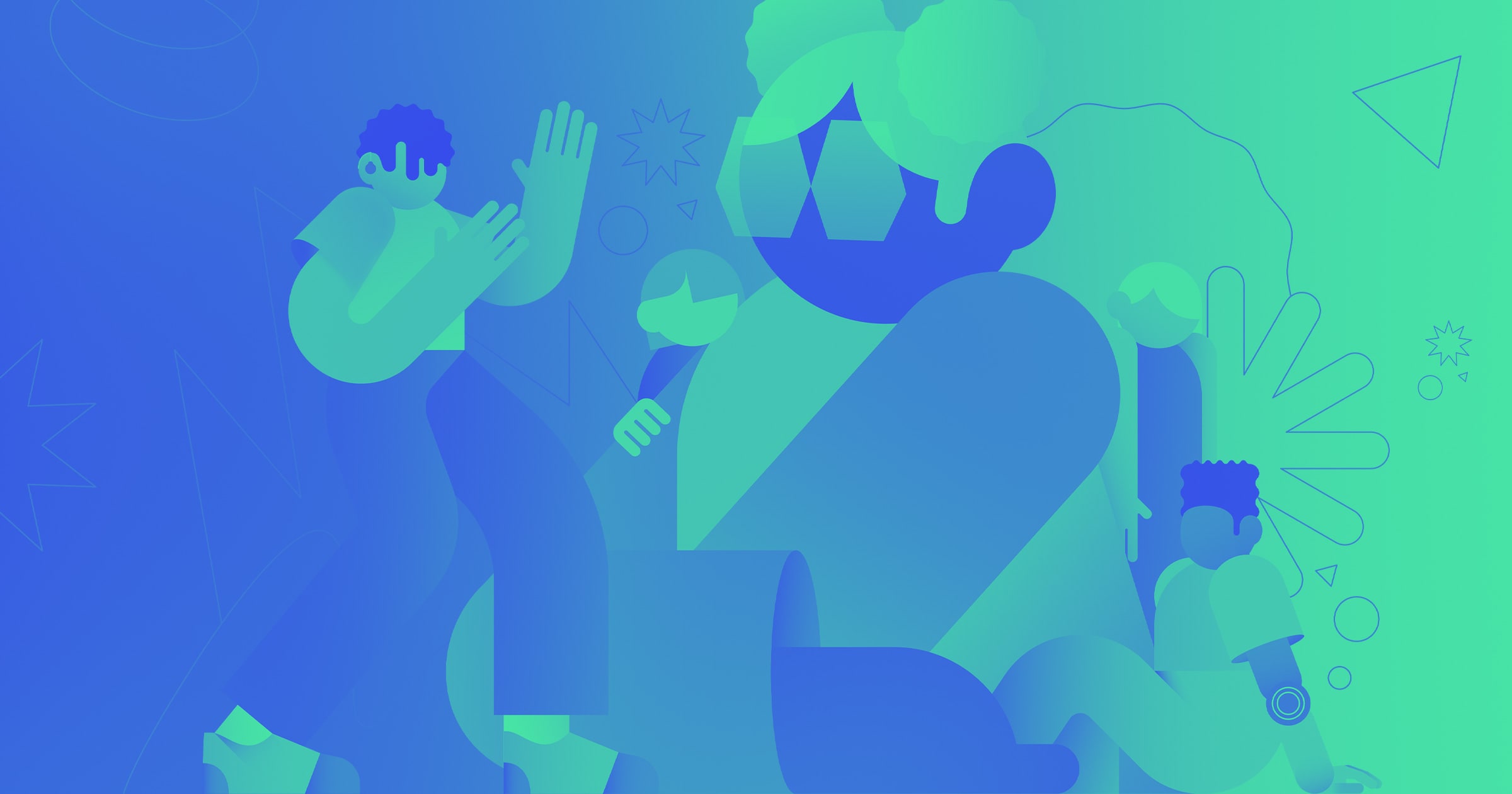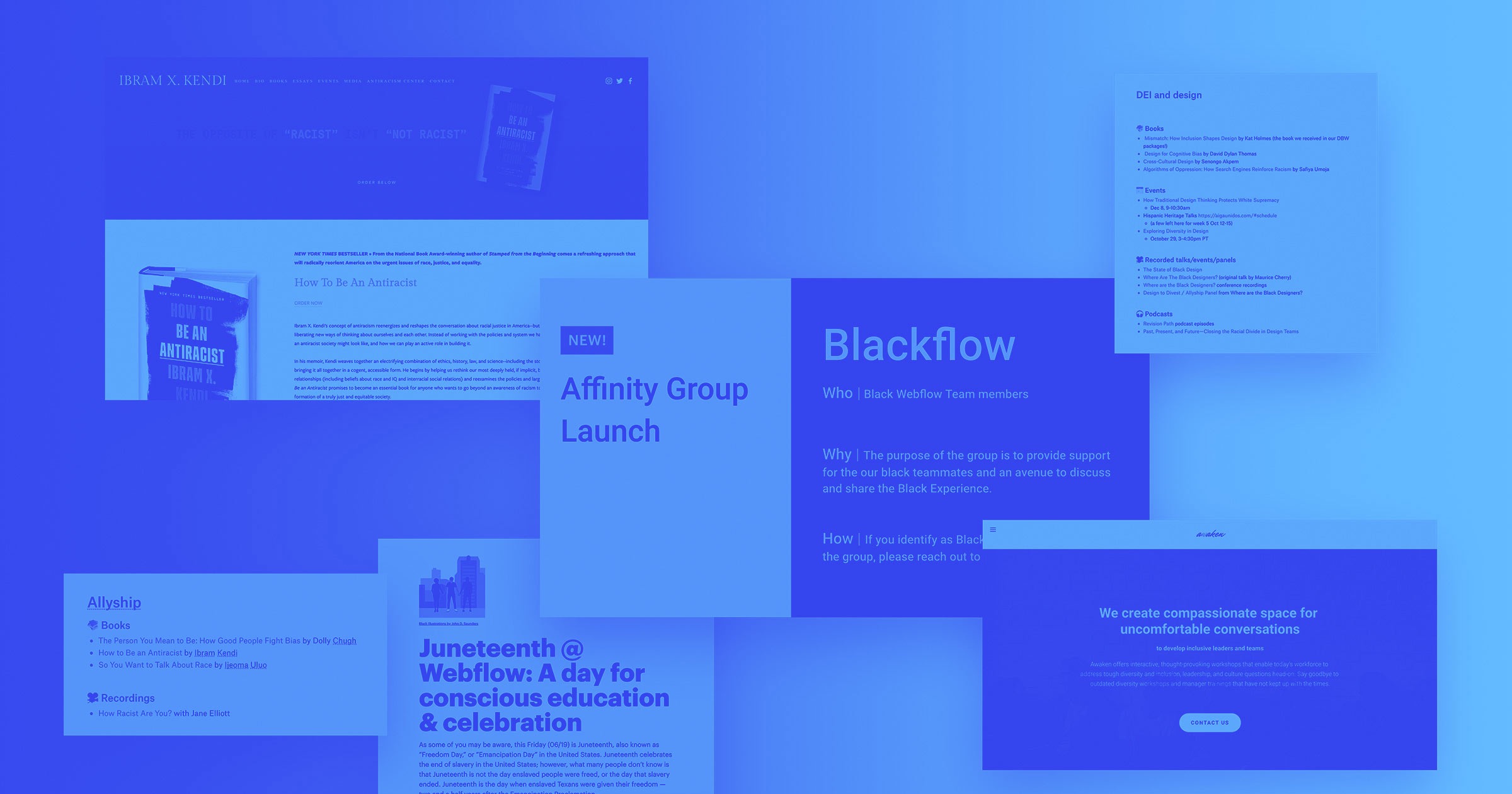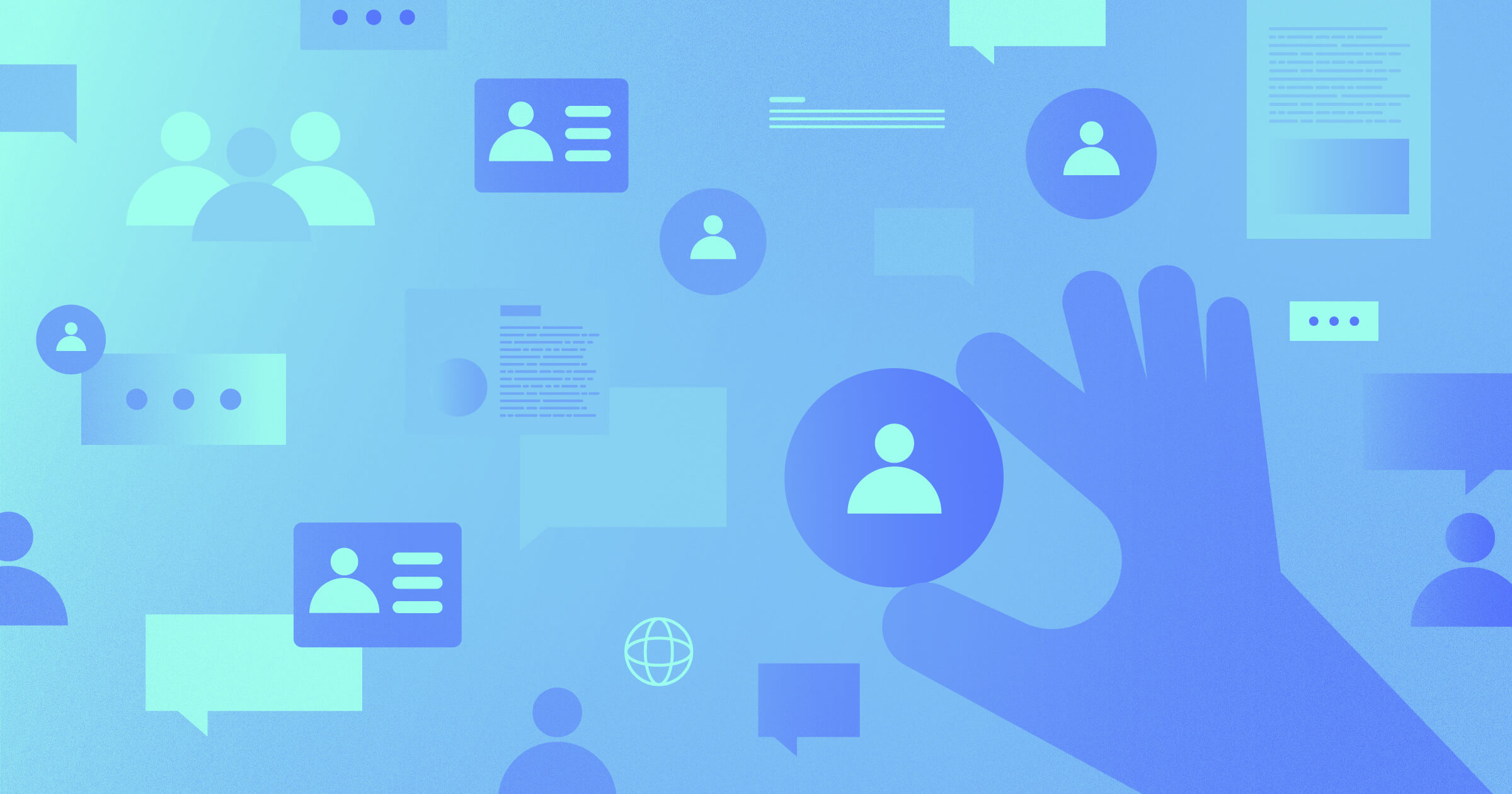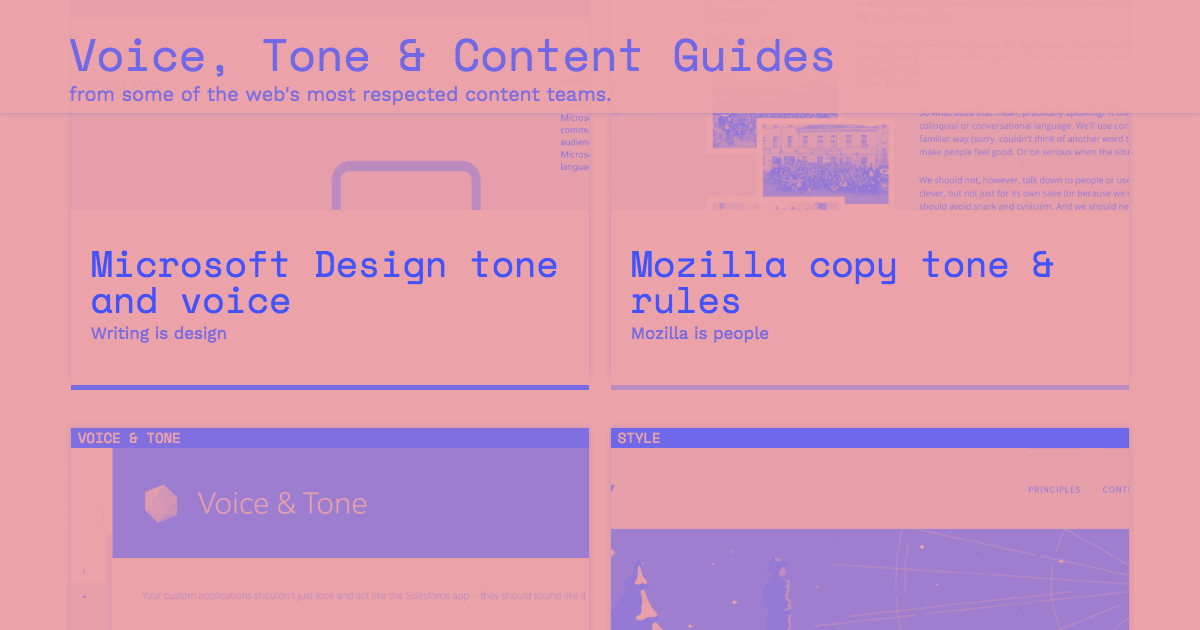Our Black affinity group at Webflow, Blackflow, came together to discuss and share insights about how companies and leaders can empower their Black communities — during Black History Month and beyond.
If you’re not familiar, an affinity group, also known as an employee resource group (ERG), is a group of team members linked by a common identity. At Webflow, we fund our affinity groups and pay our affinity group leaders to create a safe space for support, empowerment, and allyship.
Our conversation with members of Blackflow covered the Black experience at Webflow, how intersectionality affects the lived experiences of Black people, and how leaders can create inclusive, engaging, and empowering spaces for Black people. Here’s what our Blackflow members have to say:
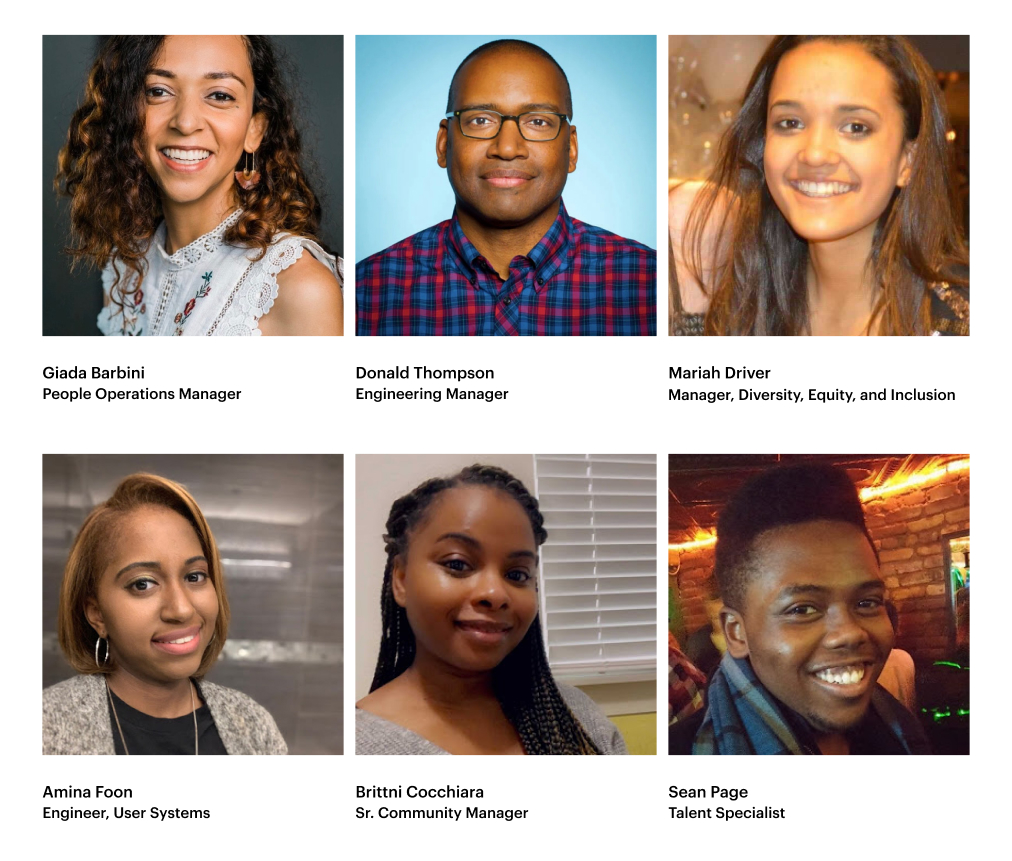
What initially attracted you to Webflow? What role/work do you do on the team now?
Brittni Cocchiara (Senior Community Manager): When I was interviewing for a role on Webflow’s community team, I was given the opportunity to connect with one of Webflow’s Black team members. During our conversation, I was immediately struck by Webflow’s genuine commitment to growing and empowering its Black community. For probably the first time, I felt like I could truly be 100% myself on Webflow’s team.
Donald Thompson (Engineering Manager): I was attracted to Webflow based on Vlad, Sergie, and Bryant’s vision. I wasn’t looking for a job at Webflow initially, but my now colleague Josh Cypher introduced me to the engineering team’s leadership. After each interview I had with members of the team, I became more and more excited about Webflow. By the time I reached my interview with Vlad, I was 100% all in.
Brandon Graham (Software Engineer): I was a week away from finishing my bootcamp and my now colleague Amina came to me about the apprenticeship. By the time I made it through my interviews I was hoping I got hired here over any of the other places I applied to. Every interview I had was with someone who loved being here. It was infectious for sure. Now I currently work on the automation testing front, empowering our devs to create freely.
How has Blackflow improved your sense of belonging at Webflow? What could other companies learn from your experience?
Brittni Cocchiara (Senior Community Manager): Honestly, just the fact that there was a private space for Black people was amazing. My previous companies, and most companies, view private, all-Black spaces as problematic. But Webflow decided to not only create but fund and support the Blackflow affinity group. The group makes me feel like I have a true community at work that understands my experience as a Black woman, and especially this past year, that was so needed.
Amina Foon (Software Engineer): Blackflow has given me access to a space where people who share similar identities to myself can have real talk and be open about their experiences at Webflow and beyond. Companies should make sure there is a space dedicated to Black people. You can’t just hire Black people without thinking about retaining them.
Giada Barbini (Total Rewards Manager): Having spent the majority of my life surrounded mainly by white friends, white family members, and white teammates, I did not realize that a big part of my identity was being not cared for and acknowledged until I joined Webflow and Blackflow. The way that other Blackflow members come together, reflect on our collective experience, and give space to each other to be and feel a whole spectrum of emotions is something I didn’t know I was missing, and that I feel grateful to have now. My advice to other companies: recognize the diversity within your team and the different needs, rather than assume that equity and belonging means treating all people the same.
Donald Thompson (Engineering Manager): During the George Floyd tragedy, Juneteenth, and other events that rocked the Black community, Blackflow became a place of comfort and support. By joining Blackflow, I was able to receive words of affirmation and gain a sense of community. In fact, because of the relationships I made through Blackflow, I felt empowered as a manager to request that all Engineering Managers provide leniency and support to their reports during the George Floyd tragedy.
What is one piece of advice you would give to leaders who want to support Black people within their company?
Brittni Cocchiara (Senior Community Manager): My advice for leaders is to really take the time to talk to and listen to your Black employees. And not with the intention of fixing or solving their experience right away, but just with a desire to understand what you can’t see or experience yourself. At the end of the day, we aren’t expecting our leaders to fix everything about our experience, we just want them to care enough to try to understand it. You can do that for your employees by just expressing curiosity about their experience, and being okay with the discomfort that may come up for you as a listener.
Sean Page, (Talent Specialist, Programs): Hire Black people as executives and board members. One of the reasons why we see clogs in talent pipelines is because very few companies (less than 2%) hire Black people in impactful leadership roles. Examine why your leadership team hasn’t considered recruiting and retaining Black people on your exec team or board.
Brandon Graham (Software Engineer): Let Black people (or any marginalized group) tell you how you should be treating the Black people (or the marginalized group) at your workplace. They have experiences and thoughts on how things are that others just wouldn’t understand. So you should let them be in charge of their experiences and listen when they speak.
Mariah Driver (Manager, Diversity, Equity, and Inclusion): See their color! I think that a lot of leaders assume that not seeing color, and not treating folks differently because of their skin color, is the ultimate goal in all of this. But leaders who can bravely and boldly acknowledge that you are Black, and who can express curiosity and a desire to learn about what that means, inside and outside of the workplace, are actually the most empowering. Leaders who want to support Black people in the workplace must be willing to see and acknowledge Blackness — and they have to be willing to be uncomfortable in conversations about Blackness, showing up time and time again to learn, and support, and build trust with those they lead.
How has intersectionality affected your Black experience in or outside of Webflow? What other identities do you possess that contribute to this experience?
Amina Foon (Software Engineer): I’m a Black woman and that’s trying… sometimes. There are obstacles you encounter as a Black person and obstacles you experience as a woman. I’m proud to be a Black woman but when I’m in spaces dedicated to either of these identities, oftentimes my experiences are not centered. It is hard to be on the fringe when you have multiple identities that are marginalized.
Mariah Driver (Manager, Diversity, Equity, and Inclusion): I am a biracial Black woman who was raised by a white mother and Black father in a predominantly white suburb. I think the intersections of my biracial identity — quite literally Black and white — have had a significant impact on my experience. Because of the color of my skin, most people treat me and look at me as a Black woman. But holding two racial identities with an especially fraught history in this country has made it difficult to find true belonging. Though I represent both black and white identities, I don’t truly feel like I am a part of either. This presents many challenges for me, but it also equips me with the language and ability to navigate both communities.
Sean Page, (Talent Specialist, Programs): As a queer Black man, it’s always hard to find a space that allows me to 100% be my authentic self. Luckily at Webflow, Blackflow and our LGBTQ+ at Webflow groups have been welcoming, warm, and open spaces. Before Webflow, I was always cautious about how I presented my blackness and queerness in work spaces because I was fearful of retaliation and lack of access to opportunity. Today, I feel psychologically safe, supported, and nourished.
What impact/contributions are you most proud of at Webflow?
Mariah Driver (Manager, Diversity, Equity, and Inclusion): I have been at Webflow for just over 3 years and have been a member of three different teams in that time. I think that what I’m most proud of is not necessarily the specific projects or initiatives I’ve contributed to, but my ability to identify opportunities for greater impact. Moving out of content and marketing and into my diversity, equity, and inclusion (DEI) role has been one of the most terrifying attempts to do that, but it has truly been the most rewarding. The work I’m doing — of educating, empowering, and activating our leaders and team as allies — is not only helping us build a better workplace, it’s also helping the people here grow personally as advocates and allies. The impact of that work, of empowering people, spans far beyond their time at Webflow. This is a source of pride for me!
Giada Barbini (Total Rewards Manager): I am proud to be able to play a role at Webflow, where I can influence the creation of systems and processes that can level the playing field for historically disadvantaged groups, such as the creation of Webflow’s first compensation strategy which aims to ensure that all team members’ compensation is reflective of the work they do. For too long, the best negotiator has secured the highest compensation (and in this way perpetuated a system of inequalities that negatively impacted the lives of people of color and other underrepresented groups), and that’s not a world we want to sustain!
Donald Thompson (Engineering Manager): I’m proud of the work the accessibility team has done so far at Webflow. The impact we have had on tens of thousands of websites is tremendous.
Sean Page (Talent Specialist, Programs): I’m proud of the work the Talent team does to attract candidates to Webflow. In partnership with our Head of DEI, Mariah, we’ve increased Black representation at Webflow by 3% in the last year — despite 2020 being a dumpster fire.
Brandon Graham (Software Engineer): On the work side, I’ve been able to refactor some long-lasting flaky tests and get them under control, further empowering our engineers to develop with confidence. I also wrote my first document on my outlook for Webflow’s Culture of Quality which was well-received. On the non-work side, our first two seasons of the Wolfdew Champions Fantasy Football League have been a success with me as commissioner!
Learn more
Webflow’s Affinity groups, like Blackflow, are one of our many efforts to create a workplace centered on diversity, equity, and inclusion (DEI). We still have a lot of work to do to realize our DEI goals, but we’re committed to making progress, amplifying the voices of underrepresented communities on our team, and sharing what we learn along the way.
If you’re interested in joining our team and doing this work with us, check out our jobs page!
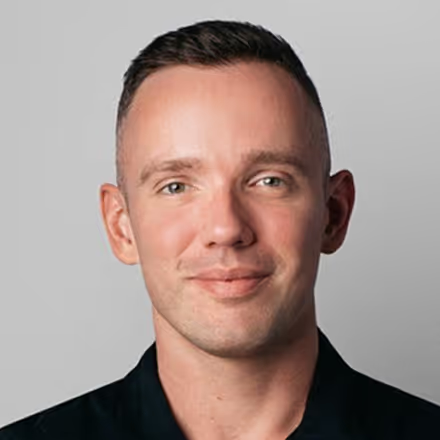
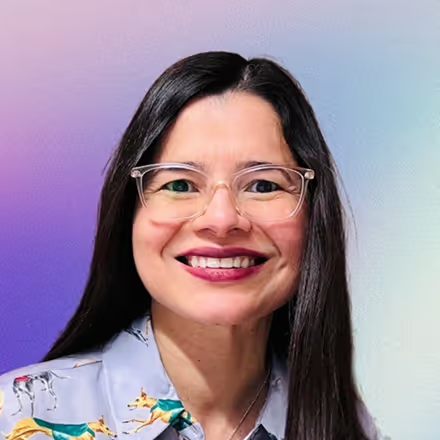







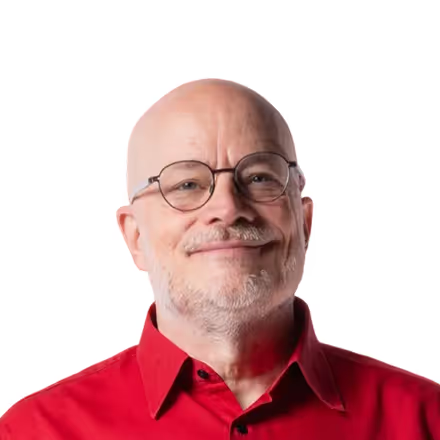

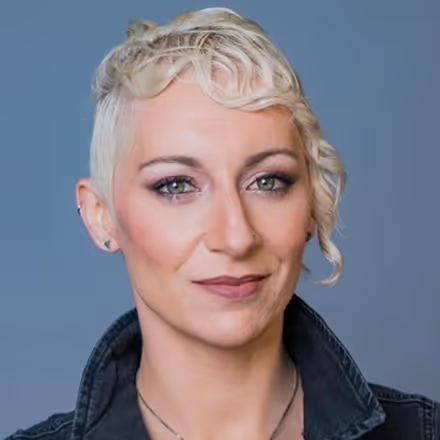
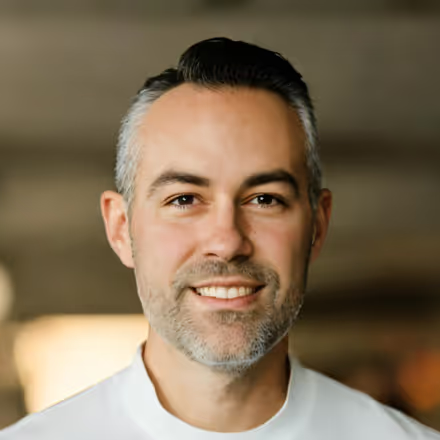




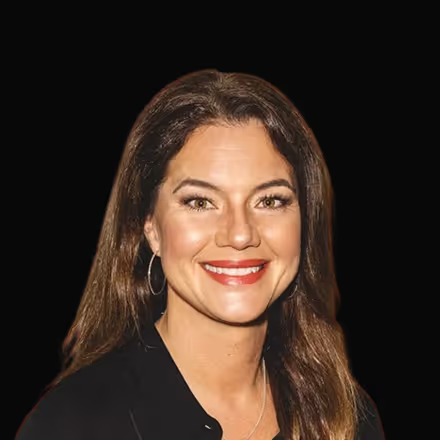

Get started for free
Create custom, scalable websites — without writing code. Start building in Webflow.


